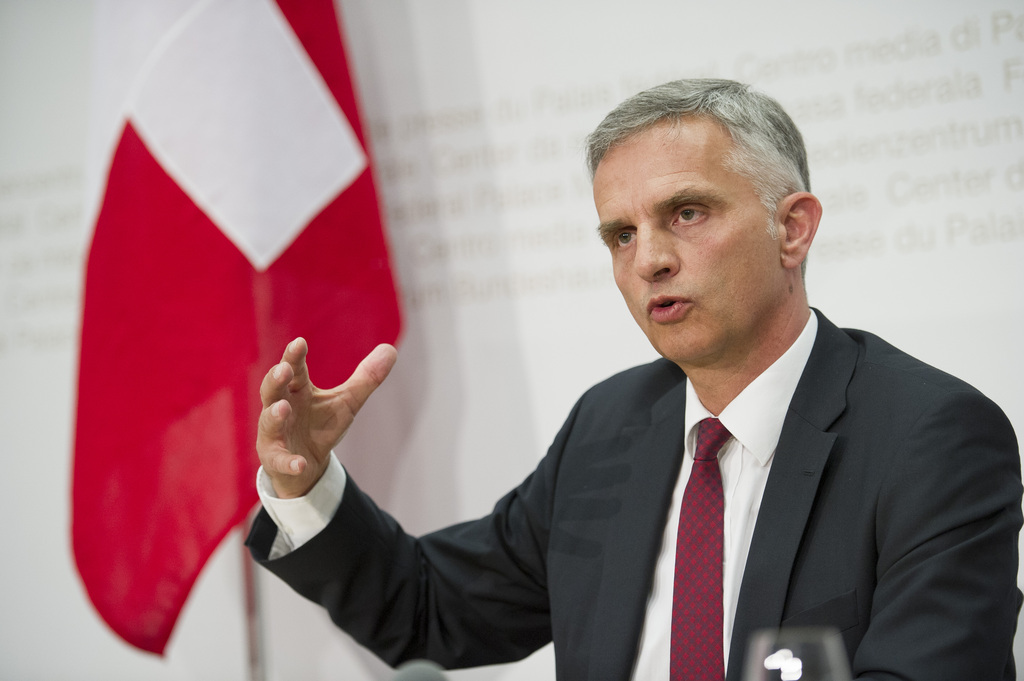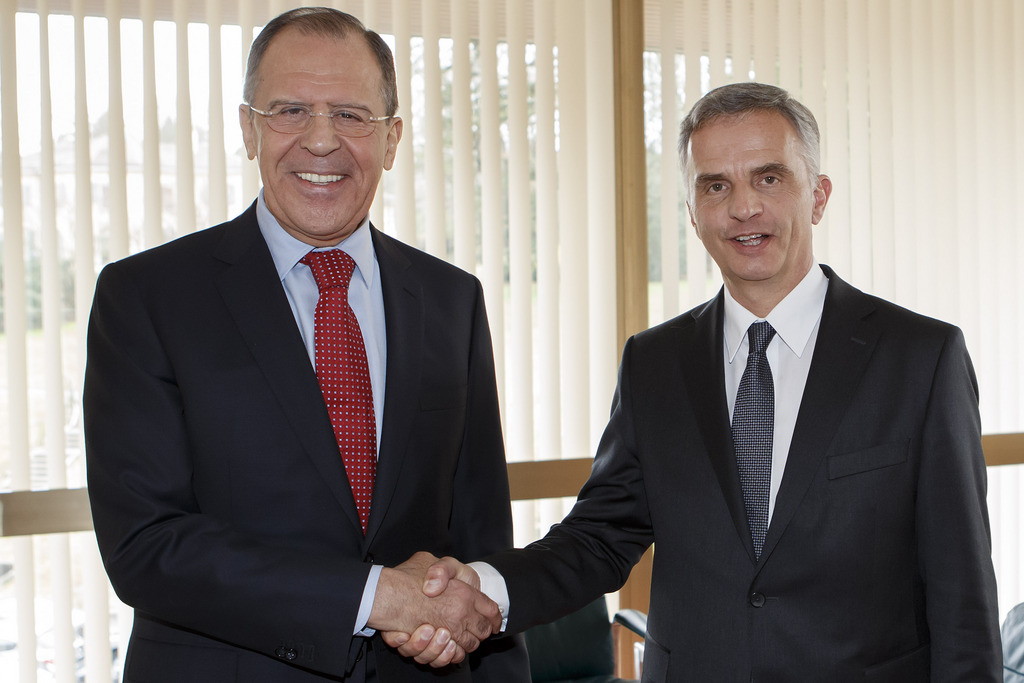Russia says Swiss steps ‘counterproductive’

Russia has renewed its criticism of Western states – singling out Switzerland – for measures aimed at punishing Moscow for what Western governments say is the illegal annexation of Ukraine’s Crimea region.
The Swiss reaction – which includes travel restrictions on a number of Russian government officials – was “unjustified and counterproductive”, the Russian foreign ministry said in a statement on Friday.
Russian news agency RIA Novosti quoted the foreign ministry as describing the Swiss government’s stance towards events in Ukraine as “out of touch with reality” and that Russian explanations hadn’t been considered.
This “prejudiced point of view” didn’t conform with Swiss neutrality or with the friendly relations between the two countries, the ministry continued. A series of events have been scheduled this year to mark 200 years of diplomatic relations.
On Wednesday, the Swiss government imposed travel restrictions on a number of Russian government officials, but stopped short of following formal sanctions by the European Union and the United States.
The EU and US have imposed visa bans and asset freezes on several Russian officials and lawmakers in an effort to punish Moscow and warn President Vladimir Putin against aggressive actions.
Balancing act
Foreign Minister Didier Burkhalter, who this year chairs the Organization for Security and Co-operation in Europe (OSCE), stressed that Switzerland wanted to maintain political neutrality and dialogue with all parties, offering its services in helping to de-escalate the tensions between Russia and Ukraine over Crimea.
Nevertheless, Burkhalter said Switzerland condemned Russia’s annexation of Crimea and took note of the sanctions taken by Brussels and Washington.
“The referendum of March 16 is illegal and violates Ukraine’s territorial integrity as well as international law,” he said.
Being part of Europe’s single border Schengen agreement, Switzerland in practice would apply travel restrictions against a group of Russian nationals, Burkhalter explained, adding that Switzerland reserved the right to impose formal sanctions depending on how the situation in Crimea evolves.
Swiss exports to Russia in 2012 stood at nearly CHF3 billion ($3.4 billion), particularly in the pharmaceutical and chemical industry as well as the engineering and electronics sectors.
Burkhalter admitted it was difficult to keep a balance between respect for international law and particular Swiss interests, notably Switzerland’s credibility.
Earlier this month Switzerland, as a member of the four-nation European Free Trade Association (EFTA), decided to suspend negotiations with Russia on a free-trade deal.
Economics Minister Johann Schneider-Ammann said it was a first formal sign of Switzerland’s concern over developments on the Crimean peninsula. He said the talks could resume in due course.
‘Shameless pressure’
Also on Friday Moscow said a United Nations resolution declaring invalid Crimea’s Moscow-backed referendum on seceding from Ukraine was “counterproductive” and accused Western states of using blackmail and threats to drum up “yes” votes.
The non-binding resolution passed with 100 votes in favour, 11 against and 58 abstentions in the 193-nation UN General Assembly on Thursday, in a vote that Western nations said highlighted Russia’s isolation.
“This counterproductive initiative only complicates efforts to resolve the domestic political crisis in Ukraine,” the Russian foreign ministry said in a statement.
It accused Western states of using the “full force of the unspent potential of the Cold War-era propaganda machine” to whip up support for the resolution.
“It is well-known what kind of shameless pressure, up to the point of political blackmail and economic threats, was brought to bear on a number of [UN] member states so they would vote ‘yes’,” the ministry said.
Several Western diplomats, however, have said Russia’s UN envoy led an aggressive lobbying campaign against the resolution in what they said showed how seriously Moscow took the UN vote condemning a referendum that led to its annexation of Crimea.

In compliance with the JTI standards
More: SWI swissinfo.ch certified by the Journalism Trust Initiative










You can find an overview of ongoing debates with our journalists here . Please join us!
If you want to start a conversation about a topic raised in this article or want to report factual errors, email us at english@swissinfo.ch.